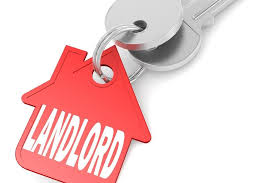 Calculating the ROI of a Rental Property:
Calculating the ROI of a Rental Property:
Everybody knows the significance of the return on investment (ROI)–that popular, versatile tool to figure out how your portfolio is performing. If you have a rental property, it’s important to know how to calculate ROI so that you can determine its efficacy as an investment.
Unfortunately, because ROI calculations can be easily manipulated–and certain variables can be either included or excluded when making the calculation–figuring out a meaningful ROI can be a challenge, especially when investors have the option of paying cash or taking out a mortgage on the property. Take a look at two basic examples for calculating ROI on residential rental property.
A Quick Refresher
Return on investment is a measure used to estimate and evaluate the performance of an investment or to compare the performance of a number of different investments. To calculate ROI, the net profit of an investment is divided by the amount of money invested, and the results are expressed as a percentage or ratio.
For instance, if you buy ABC stock for $1,000 and sell it two years later for $1,600, the net profit would be $600 ($1,600 - $1,000). The ROI on the stock would be 60% ($600 ÷ $1,000 = 0.60).
Cash Transactions
If you buy a property outright, calculating its ROI is fairly easy. Assume you pay cash for a $100,000 rental property. You also pay $1,000 in closing costs, plus $9,000 for remodeling, making your total investment in the property $110,000.
Fast forward one year. You have collected $800 in rent every month, and so have reaped $9,600 for the year. For the most realistic ROI, we’ll deduct from that cash flow $167 a month ($2,004 per year) to cover property taxes and insurance (two expenses that you can’t avoid). This gives you an annual return of $7,596.
To calculate the property’s ROI, you divide the annual return ($7,596) by the total investment you originally made ($110,000). $7,598 ÷ $110,000 = 0.069 or 6.9%. Your ROI is 6.9%.
Financed Transactions
Calculating ROI on financed transactions is a bit more complicated. Assume you purchase the same $100,000 property as above, but instead of paying cash, you take out a mortgage, making a 20% down payment. Your costs are $20,000 for the down payment ($100,000 sales price x 20%); $2,500 for closing costs (they're higher because of the mortgage) and the same $9,000 for remodeling. Your total out-of-pocket expenses are $31,500 ($20,000 + $2,500 + $9,000).
Plus, there are ongoing costs associated with the mortgage. Let's assume you took out a 30-year loan with a fixed 4% interest rate. On the borrowed $80,000 ($100,000 sales price minus the $20,000 down payment), the monthly principal and interest payment would be $381.93. We’ll add the same $167 a month to cover taxes and insurance, making your total monthly payment $548.93.
Now we take rent into consideration. Assuming your tenant pays $800 every month, you will have a cash flow of $251.07 monthly ($800 rent - $548.93 mortgage payment). Again, fast forward one year. Multiplying that $251.07 by 12 determines your net annual income, or return: $251.07 x 12 = $3,012.84.
Next, divide the annual cash flow by your original out-of-pocket expenses (the down payment, closing costs, and remodeling) to determine the ROI. $3,012.84 ÷ $31,500 = 0.095. So your ROI is 9.5%.
Some investors add equity into the equation (keep in mind that the equity is not cash-in-hand money you can spend; you would have to sell the property to actually access it). To get the amount of equity, review your mortgage amortization schedule to find out how much of your mortgage payments went towards paying down the principal (which builds up the equity). This is equity that can be added to the cash-flow figure. In this example, the amortization schedule on the loan shows that $1,408.84 of principal is paid down during the first 12 months. So, $4,421.68 ($3,012.84 annual income + $1,408.84 equity) ÷ $31,500 = 0.14. Result: a 14% ROI.
The Bottom Line
Of course, these examples are pretty basic. They don't include additional expenses a rental property might generate, such as repair/maintenance costs, which would have to be included in calculations – and thus affect the actual ROI.
Still, they work to show that ROI changes depending on whether you pay cash or finance the purchase of property. As a general rule, the less cash you put into a real estate deal and the more you mortgage, the greater your ROI will be. Conversely, the more cash you put into a deal and the less you borrow, the less your ROI will be (but the greater your net income).
Regardless of the inputs you use to calculate ROI, it’s important to use the same approach to all investments to maintain accurate comparisons. For example, if you include equity in evaluating one property, you should include it when calculating ROI on your other properties, if you have them, to get an accurate comparison.
by Jean Folger | 2017
 Resume
Resume Properties
Properties Sellers
Sellers Buyers
Buyers Mortgage Calculators
Mortgage Calculators InfoLinks
InfoLinks



